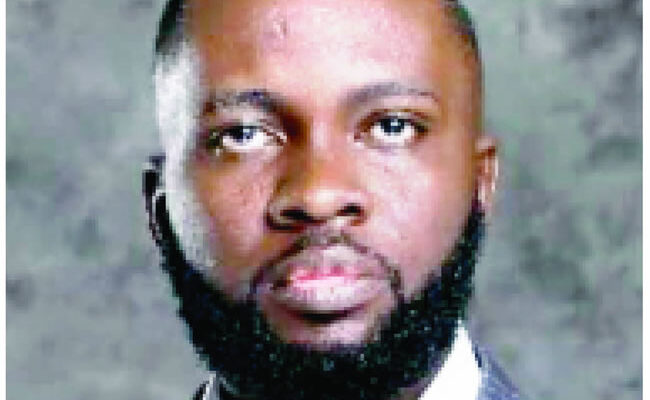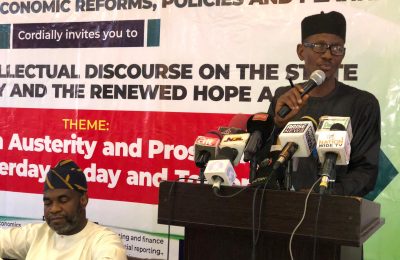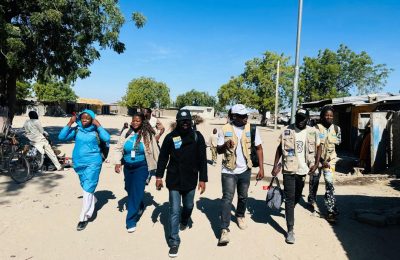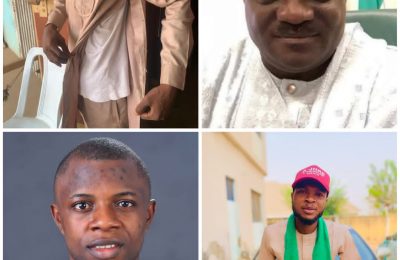
Olabode Adetunmobi, a strategy consultant, speaks with WALE AKINSELURE on the untapped opportunities in the digital world amid unemployment and youths crave for jobs.

YOU consult for the public and private sectors. What are the impediments in getting results when dealing with the two sectors?
Yes. In the private sector, the end gain is productivity. Everybody wants to achieve a particular result, you share ideas, you have one destination but in the public sector, it is different. In the public sector, the intention of the project has to be hidden before you can commence the project because if you let the cat out of the bag, you won’t get it done. This is not accusing the civil servants but interests matter when considering projects on a large scale. The interest of the public servant may be different from that of the civil servant and the consultant and reaching a level of compromise is always that difficult.
Is level of digitisation what varies the extent to which results are achieved in the private sector compared to the public sector?
In the private sector, it is easier; it is productivity optimisation. In the public service, it is difficult when interests don’t align. For example, delay in the public sector is a tactic used by the civil servants. I have created over 17 solutions to digitise process in Oyo State. Digitisation in the public sector is difficult because of the manual process usually adopted. When you move files from one place to the other, files could get missing but when you digitise process, files cannot be missing. The level of sophistication of an average civil servant is lownow. But, the areas we have optimized digitisation in the private sector is in the area of revenue collection. What the Oyo State Government is currently doing in their digitisation effort is yielding so much result. An administration was doing N19 billion in revenue and a new administration is doing N58 billoon in the space of few years. Even the digitisation in Oyo State is only one percent. Imagine when everything is optimised when you don’t have the bureaucracy of the civil service to get things done.
What is the role of political will in all of these?
Some governors have political asset and this transfers to political will. For example, Governor Seyi Makinde, not being partisan, has a huge political asset and the people love him. But, when you start drawing from the political asset like regular payment of salaries and pensions, being a listening and empathetic governor, you get political will. Digitisation is about having a balanced stakeholders’ map.
You intend to organise a programme tagged unlocking youths potential using digitisation. What do you intend to achieve?
I hear a lot about 33 percent million unemployed youths and I beg to differ; that is actually not true. Our youths are gainfully employed and those that are not are busy with one thing or the other. Digitisation has huge potential. If you look closely at the naira redesign, the reason for failure in banking transaction was lack of human capital in that space. I was listening to Chairman of Interswitch, recently, and he was saying the reason for banking failure is that the people that have the prerequisite skills to navigate the transfer issues have ‘japa’. So, we need to have huge human capital index as a nation to meet our needs in terms of digitisation. As we speak, there are many jobs. I know of 10,000 jobs that are available in the digital space based on my relationship with public and private sectors. The gap is there so why do we have unemployment as a nation. Look at the skit industry; we need video editors. A very good skit maker makes 40,000 dollars a month.
Do we have people that can edit videos or do they all have to queue for just one person?
Most of them use one person to edit their videos. That means there is space. I have a relationship with a company that is looking at employing more than 1,000 video editors and we are saying there are no jobs. In the area of software development, cyber security. Most of our banks have been attacked because we don’t have enough cyber security experts. So, there is a huge back in area of digital economy.
What needs to change is it that youth don’t have this orientation regarding these opportunities or the system has been so configured for them to only look at white collar jobs?
One of the ways is Level Up events. Level Up events are like orientation programmes to tell people that the jobs are there but they need to find a way to get them. You also need to re-orientate them on finding jobs. Most people offer these courses and don’t show them the way to get these jobs. On our part, we are saying they should do a programme three months and at the end of the programme, we will make sure they secure job. Nigerian system has taught them that after four years of education is for them to become administrator and that they have to go help their mother at the shop. They need to have the orientation that there are jobs and they need to have the right skills to get these jobs.
What is the target of your programme in terms of pulling people out of the unemployment market?
My target is 10,000 annually. At our programme on April 15, at the University of Ibadan, we are looking at engaging 3,000 youths by the grace of God; we are looking at increasing that number next year.
How much can one make monthly, on the average, having a job in the digital space?
On an average basis, you can make as much as 40,000 dollars and a minimum of 150 dollars, depending on the capacity. Attitude is crucial; the digital world is a leveller for everybody. It doesn’t respect the old or young. It is an equal playing field and everybody can tap into it to become better. A three month course can change your life. I have someone that earns N500,000 and is still in the University of Ibadan (UI); I have another person that earns N80,000 and is still in UI. I have people in PWC, Deloitte because they have one digital skill or the other.
But government sounds unmoved about the ‘japa’ syndrome. Why must government give this trend serious attention?
Data has shown that we don’t have as much people as we think in Nigeria. For example, in the recently conducted election where we had over 90 million people registered but just over 20 million people came out to vote. Critically looking at it, we can see that there is a huge fraud going on in the system and the fraud is that Nigeria’s population might not be 200 million as we all think. We need to come to reality that we might not have that much resourcefulness as we think, the best for us as a nation.
What must the president-elect do to optimise our huge youth population and inherent advantages of digitisation?
The president-elect needs to look at youth inclusion. Youth inclusion is key to solving Nigeria’s problems. In Lagos, we have an appointee who is 38 years old that is changing the narrative; also look at the Fintech industry, people can now pay via card system, they don’t have to go around with cash to pay for things. That is the new way of doing things not the traditional system. The moment we carry along our youths, so many problems will be solved. So, he has a huge challenge to make youths relevant in his administration.
READ ALSO FROM NIGERIAN TRIBUNE








